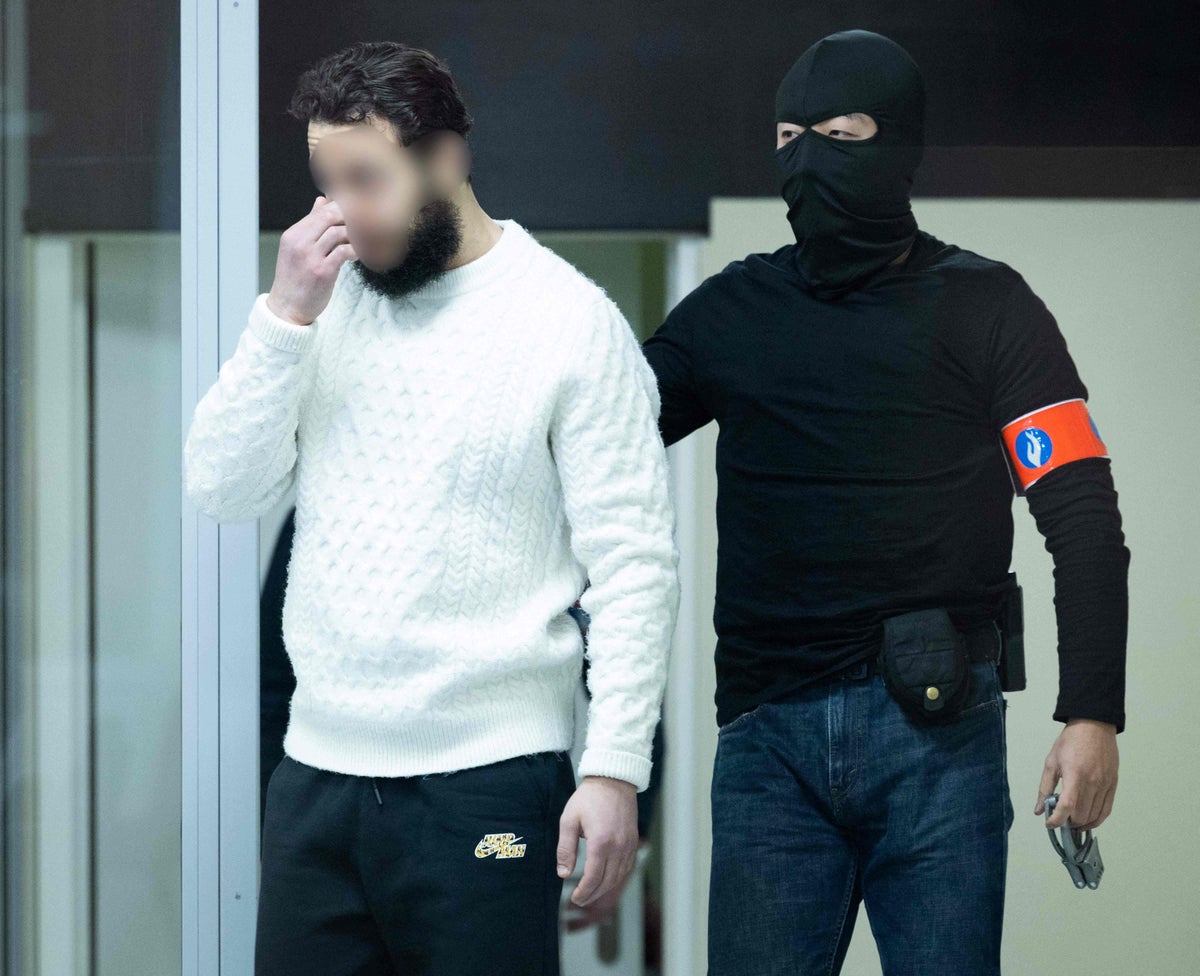
Six men have been found guilty of murder over the 2016 Brussels terror attacks that killed 32 people and injured hundreds in what is Belgium’s worst peacetime violence.
The morning rush hour attacks on March 22, 2016, at Zavantem Airport and on the Brussels subway’s central commuter line deeply shook the city, home to the headquarters of the European Union and Nato, and put the country on edge.
Among those convicted was Salah Abdeslam, who already is serving a life sentence without parole in France over his role in attacks that hit Paris cafes, the Bataclan theatre and France’s national stadium in 2015.
Both the Brussels and Paris attacks were claimed by the Islamic State (IS) group. The verdict was reported by public broadcaster RTBF, newspaper Le Soir and news websites HLN and Nieuwsblad.
The chief judge read out the verdict and explanations by the 12-person jury, who made a clear connection to IS and its extremist ideology. The reading of the verdict was expected to take several hours.
In addition to the six people convicted of terrorist murder, four others on trial were acquitted or facing other charges. Terrorist murder was among various charges suspects were facing. Sentencing will be decided in a separate process, not before September.
The biggest trial in Belgium’s judicial history unfolded over seven months in a special court to address the exceptional case.
In addition to the 32 people killed in the attacks, nearly 900 others were wounded or suffered serious mental trauma.
Jamila Adda, president of the Life4Bruxelles victims’ association, gathered a group of survivors at the special courthouse to hear Tuesday’s verdict. Among them was a man named Frederic, who said the ‘”atrocious crimes” of March 22 still haunt him.
Defendant Salah Abdeslam arrives under police escort for the trial of alleged jihadists— (Belga/AFP via Getty Images)
“We have been waiting for this for seven years, seven years that weighed heavily on the victims ... We are waiting with impatience, and with some anguish” for the verdict, he told The Associated Press.
Frederic, among the commuters who survived the attack at the Maelbeek metro station, spoke on condition that his last name not be published to protect his identity.
Survivors have supported each other through the proceedings, some coming every day.
“It is important to be together, to hear the decision of justice,” Frederic said. And then, they hope “to be able to turn the page”.
The 12 jurors have been deliberating since early July over some 300 questions the court asked them to consider before reaching a verdict.
Those convicted could face up to 30 years in prison.
Salah Abdeslam is already serving a life sentence without parole in France over his role in attacks that hit Paris in 2015— (Copyright 2019 The Associated Press. All rights reserved.)
Abdeslam was the only survivor among the Islamic State extremists who struck Paris in November 2015 and were part of a Franco-Belgian network that went on to target Brussels four months later.
After months on the run following the Paris attacks, Abdeslam was captured in Brussels on March 18, 2016, and his arrest may have prompted other members of the Islamic State group cell to rush ahead with attack plans on the Belgian capital.
Also on trial in Brussels was Mohamed Abrini, childhood friend of Abdeslam and a Brussels native who walked away from Zaventem airport after his explosives failed to detonate.
Oussama Atar, who has been identified as a possible organiser of the deadly attacks on both Paris and Brussels, was tried in absentia.
He is believed to have died in the Islamic State group’s final months of fighting in Iraq and Syria.







